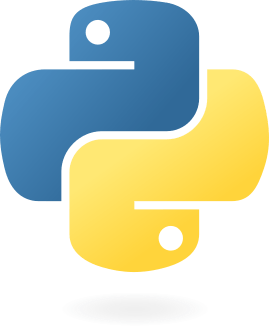LearnPython has the Biggest Discount Ever! ------ Get $349 $129 Lifetime Access to all 13 Python Courses
Rust vs. Python: Is Rust Better than Python?
When one is just starting out in Programming, selecting the appropriate language might be likened to walking through a magical forest; every step offers the possibility of discovering new things, but also presents distinct difficulties. Rust and Python are two of the many languages that stand out due to their unique features, applications, and communities. By shedding light on these two languages, I hope to help beginners better comprehend their distinctions and maybe determine which would be the most appropriate for them on their journey.
What Is Rust?

Rust is a systems programming language that focuses on safety, concurrency, and memory efficiency. It was developed by Mozilla Research and is designed to prevent common programming errors, such as null pointer dereferences and data races.
Rust has a strong static type system and ownership model, which ensures memory safety without the need for a garbage collector. It is often used for developing low-level systems, game engines, and high-performance applications.
What Is Python?

Python is the Swiss Army knife of programming languages—versatile, beginner-friendly, and widely adopted across various domains from web development to data analysis, machine learning, and beyond.
It emphasizes readability and simplicity, making it an excellent choice for beginners and professionals alike. The vast collection of libraries and frameworks, such as Django for web development and TensorFlow for machine learning, extends its capabilities far and wide.
Rust vs. Python: Key Differences
1. Performance
- Rust: Designed for performance-critical applications, Rust offers execution speed comparable to C and C++, making it ideal for system-level programming, embedded systems, and performance-critical applications.
- Python: While Python excels in developer productivity and ease of use, its performance can be slower than compiled languages like Rust, due to its dynamic nature and interpreted execution.
2. Learning Curve
- Rust: Has a steeper learning curve due to its unique approach to memory management and its comprehensive compile-time checks. It demands a good understanding of systems programming concepts, which might be challenging for beginners.
- Python: Renowned for its simplicity and readability, Python is often recommended as a first programming language. Its syntax is intuitive, and the vast availability of learning resources and community support makes it very accessible to newcomers.
3. Use Cases
- Rust: Best suited for system-level applications, game engines, operating systems, and other scenarios where performance and safety are critical. It’s also gaining traction in web assembly and embedded systems.
- Python: Its versatility shines in web development, data analysis, artificial intelligence (AI), scientific computing, and automation. Python’s simplicity and the powerful libraries make it ideal for prototyping and complex application development across various domains.
4. Community and Ecosystem
- Rust: While newer, the Rust community is vibrant, growing, and notably friendly and supportive. The ecosystem is expanding, with libraries and tools continuously evolving.
- Python: Boasts one of the largest programming communities, with a vast ecosystem of libraries, frameworks, and tools for nearly every application imaginable. It’s well-established in both academia and industry.
Syntax Comparison: Rust vs. Python
Hello, World!
fn main() {
println!("Hello, World!");
}
print("Hello, World!")
In Rust, you define a main function (fn main()) as the entry point of your program, which is a common pattern in many compiled languages. Python, on the other hand, doesn’t require a main function for simple scripts; you can directly call built-in functions like print.
Variable Declaration
let name = "Steve";
let age: u32 = 21; // Explicitly defining the type as unsigned 32-bit integer
name = "Steve"
age = 21 # Python infers the type automatically
Rust requires you to use the let keyword to declare variables. While Rust can often infer the type of the variable, you can also explicitly specify it for clarity or necessity. Python is dynamically typed, meaning you don’t need to declare the type of a variable explicitly—the interpreter infers it automatically.
Conditional Statements
let number = 6;
if number % 2 == 0 {
println!("{} is even", number);
} else {
println!("{} is odd", number);
}
number = 6
if number % 2 == 0:
print(f"{number} is even")
else:
print(f"{number} is odd")
Rust and Python follow similar structures for conditional statements, but there are differences in syntax. Rust uses braces {} to define blocks of code, while Python uses indentation. Additionally, Python simplifies string formatting with f-strings (as shown above), making code slightly more concise and readable.
Loops
for number in 1..5 {
println!("{}!", number);
}
for number in range(1, 5):
print(f"{number}!")
Looping in Rust and Python showcases each language’s approach to iteration. Rust’s for loop iterates over a range defined by 1..5 (which excludes the number 5), while Python’s range(1, 5) function achieves a similar effect. Note Python’s reliance on indentation to define the loop’s body.
The syntax differences between Rust and Python underscore their distinct design philosophies. Rust’s syntax, requiring more explicit declarations (e.g., variable types and code blocks with braces), caters to its performance and safety goals. Python’s syntax, emphasizing readability and brevity, aims to facilitate quick development and ease of learning.
Understanding these differences is crucial for beginners as it affects not only the learning curve but also the types of projects and tasks that can be tackled more naturally in each language. Whether you prefer the explicitness and control offered by Rust or the simplicity and readability of Python, both languages offer valuable tools for solving a wide range of programming challenges.
FAQs on Rust and Python
How to write a Python GUI on top of a Rust implementation?
To create a Python GUI on top of Rust, you typically write the core logic or performance-critical parts of your application in Rust and then expose them to Python using foreign function interfaces (FFIs) like PyO3 or rust-cpython. These tools allow Rust functions to be called from Python. You can then use a Python GUI framework (e.g., Tkinter, PyQt, or Kivy) to build the user interface that interacts with your Rust code.
Does Rust use Python?
Rust does not inherently use Python in its language or standard library. However, Rust and Python can interoperate. Python can be used for scripting or automating tasks in Rust projects (like build scripts), and Rust can be used to extend Python applications, offering performance improvements where needed.
How to wrap your Python code in Rust?
Wrapping Python code in Rust involves using Rust’s FFI capabilities to call Python functions. This can be achieved by using libraries such as PyO3 or rust-cpython, which allow Rust to run Python interpreters and execute Python code. This approach is useful for integrating Python libraries into a Rust application or for enhancing performance by rewriting critical sections of a Python program in Rust.
Do you think Rust will be bigger than Python?
Whether Rust will become “bigger” than Python depends on the metrics used (e.g., user base, application areas, job market). Rust is growing in popularity, especially in systems programming, web assembly, and embedded systems due to its performance and safety features. However, Python has a broad adoption across multiple fields, including web development, data science, AI, and education, due to its ease of learning and versatility. Both languages are expanding, but they serve different needs and communities.
Can you encrypt Python code with Rust language?
Yes, you can use Rust to write encryption algorithms or utilize existing Rust cryptography libraries to encrypt data that will be used or stored by a Python application. The encrypted data can be exchanged between Rust and Python components using FFIs or by integrating Rust modules into Python using tools like PyO3. This method leverages Rust’s performance and security features for cryptographic operations while maintaining the flexibility and ease of use of Python.
Can you rewrite Python code in Rust?
Yes, you can rewrite Python code in Rust, especially if you aim to improve the performance and safety of your application. However, the rewrite involves more than translating syntax; it requires adapting to Rust’s ownership, lifetimes, and concurrency models. For parts of an application where performance is critical, rewriting in Rust can be beneficial.
Can you use Rust and Python together?
Absolutely! Rust and Python can be used together by leveraging Rust’s ability to compile to shared libraries and Python’s ability to call functions from these libraries. This interoperability allows developers to write performance-critical parts of their application in Rust while leveraging Python’s vast ecosystem for tasks like UI development, data analysis, and machine learning.
Is Rust better than Python?
“Better” is subjective and depends on the context of the project and developer preferences. Rust offers advantages in performance, memory safety, and concurrency, making it suited for system-level programming and performance-critical applications. Python excels in rapid development, ease of learning, and versatility, making it ideal for web development, scripting, data analysis, and AI. The choice between Rust and Python should be based on the specific requirements of your project and your familiarity with the languages.
Can you put Python code inside of Rust code?
Directly embedding Python code inside Rust is not the usual approach. Instead, you would call Python code from Rust using FFIs like PyO3 or rust-cpython. These libraries allow Rust applications to interact with Python interpreters, run Python scripts, and utilize Python libraries. This way, you can leverage Python’s extensive ecosystem within a Rust application, combining the strengths of both languages.